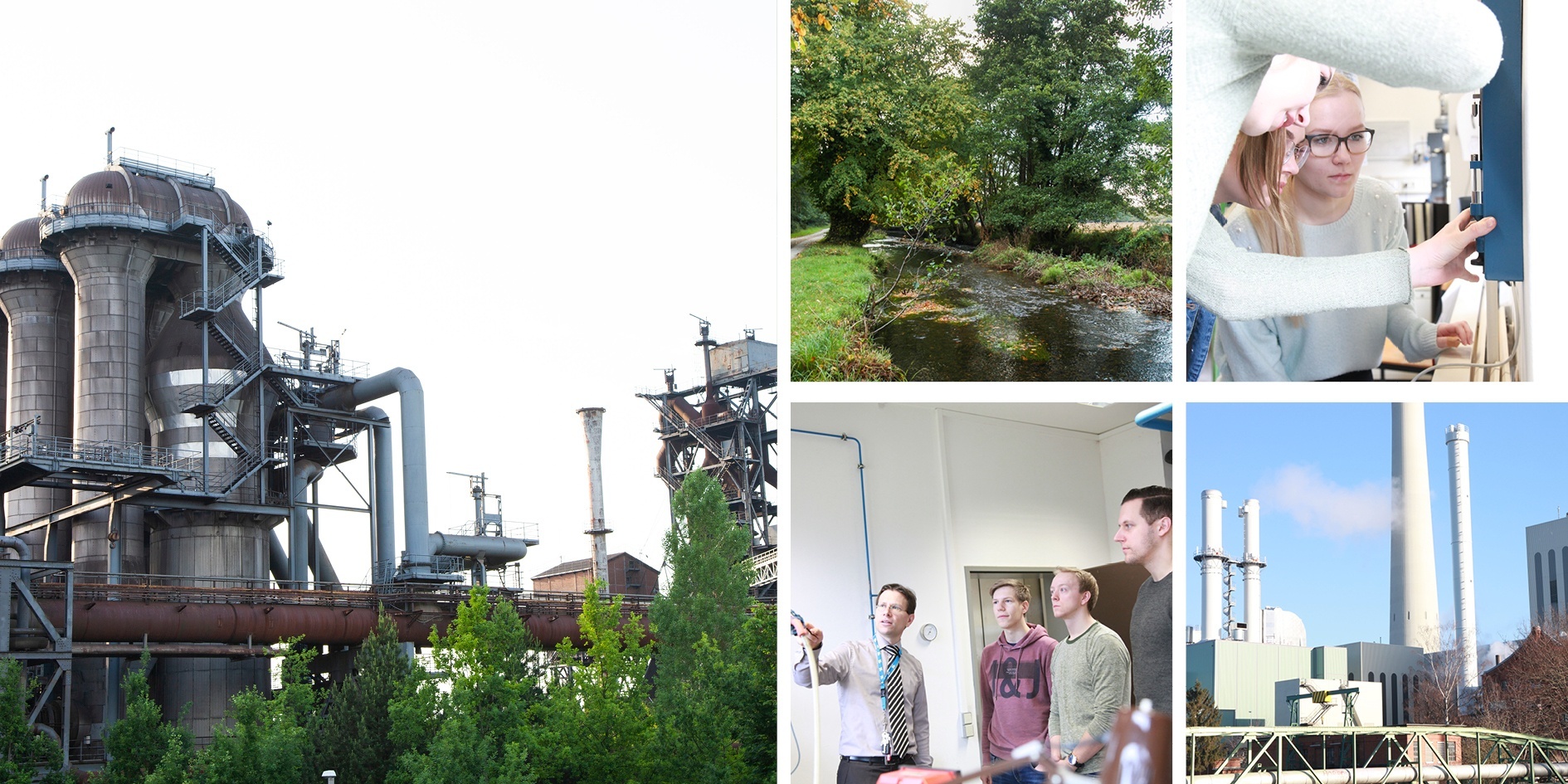
Drive the energy transition and environmental protection further!
A steadily growing world population combined with increasing industrialization and increasing prosperity has led to ever-greater damage to the environment. In the past, investments in more efficient energy conversion processes, in the more economical use of energy or in combined heat and power were not worthwhile. The environmental damage requires a new technology assessment.
In the future, technical solutions that are less harmful to the environment and more sustainable will be implemented to a greater extent. This reorganisation of structures requires high investments and thus well-trained engineers.
The target group of the course are prospective students who want to participate in the transformation of the energy system.
The degree course content includes the supply of goods such as energy, water and gas for processes in both the private and industrial sectors, with the aim of designing these processes in such a way that these goods are used more economically and in a more environmentally friendly manner in the future.
Students learn how to minimize emissions of greenhouse gases. They learn how to deal with environmentally hazardous substances such as those found in exhaust gases, waste and wastewater. They also learn methods to remediate environmental damage. The focus is on industrial processes, energy conversion and process engineering.
Duration of study
7 semesters regular study period. If the studies are started in the summer semester, the
duration can be extended by one semester.
Graduation
Bachelor of Engineering (B.Eng.)
Type of study
Full-time study
Language of instruction
German
Beginning
In the summer and winter semester
Admission
Admission free
Accreditation
ZEvA accredited degree program
The course content are divided into:
Mathematical and scientific basics (for example: mathematics, physics, chemistry)
Fundamentals of engineering science (for example construction, materials and building science, thermodynamics, fluid mechanics, mechanics, electrical engineering)
Engineering applications I (for example applied thermodynamics, energy and refrigeration technology, measurement, control and regulation technology, urban water management, components of thermal systems, networks, regenerative energy technology)
Engineering applications II (for example heat and mass transfer, environmental systems, terrestrial systems, application-related plant construction, ecosystem pollution and renovation, exhaust gas cleaning, waste water treatment, waste treatment, programming)
Examples of elective courses:
Project work on the subjects of energy technology, green engineering, pollution control and air pollution control, wastewater, etc.
Specialization project and bachelor thesis in the final semester
Labs accompany almost all lectures so that you have the opportunity to put what you have learned into practice immediately.
The graduates are qualified to start professional practice in the following institutions or business areas:
Further information can be found in our section "International".
Consecutive Master studies (extra occupational)
After completing your studies, you can complete the master's program Energy Systems Engineering and choose between these specializations:
Degree: Master of Engineering (M.Eng.)